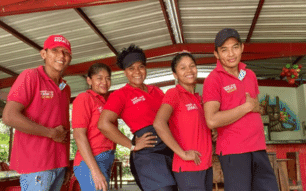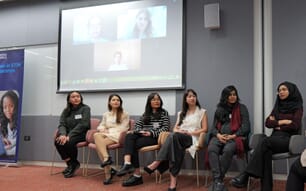Briefly describe your aquaculture career
I have had two distinct shifts in the world of aquaculture – initially with Marine Harvest back in the mid-to-late ’80s and then, more recently, with FAI Aquaculture. I started life as a livestock vet in a mixed practice in the Highlands, which was my dream job as it was as close to a James Herriot type of practice as you could get. Being a small female in a mainly male-dominated profession, I fully expected that if a large male vet applied for a job with large animals along with me he would get it. I was so lucky to get the chance and loved every minute.
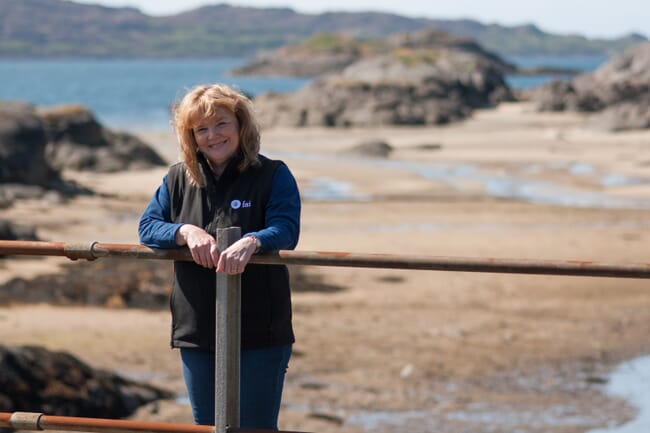
What inspired you to move into aquaculture from being a livestock vet?
I met my husband [John], who at that time was a farm manager for Marine Harvest, and although I tried to continue practising as a livestock vet, the logistics of where we lived made it nearly impossible – and at that point Marine Harvest were advertising for their first vet. They had previously been using the practice I was in for prescriptions and wanted to bring this in-house. I applied and got the job. In 2014 I started with Benchmark working in a consultancy role for three months, but the challenge and aims of Benchmark kept me there and in 2016 I took over as managing director of FAI Aquaculture.
How does a day in the life of a fish vet vary from a day in a large animal practice?
I very much enjoyed the one-to-one interaction with my livestock patients, something I missed as a fish vet. However, the principles of caring for health, welfare and husbandry are the same and there are great challenges to be overcome, even now, particularly within salmon farming. I love a challenge!
When I started with Marine Harvest the fish health team knew far more than me. As much as I was employed to dispense prescription-only medicines, they soon realised that I wanted to see everything and be involved in it all. The industry has changed now – the company vet is at the centre of healthcare and involved in health decisions at all levels – but that was a new concept back when I started. I loved learning something new. I survived the days before the furunculosis vaccine and loved being out on the cages.
My daily routine in my present role, on the other hand, is focused on problem solving. Cleanerfish are part of the sea lice solution and I love that Benchmark wants to offer a holistic approach. My role as MD of FAI Aquaculture allows me to help with that, as our research site at Ardtoe is perfectly placed to develop solutions for the future, and our lumpfish, produced at Aultbea and Shetland, are part of the current solution.
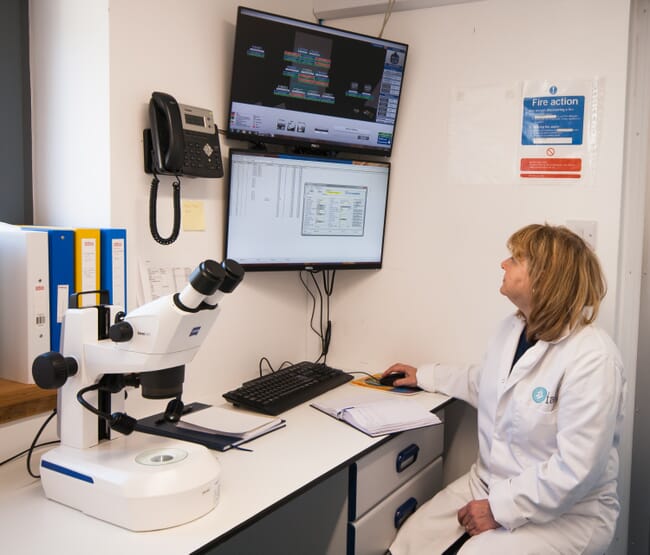
How has Ardtoe changed since you’ve been running it?
When I first became involved Tim Atack and Jim Treasurer were running Ardtoe. Both of them were, and still are, passionate about researching what will help the industry and were doing an amazing job with very few resources. Benchmark gave Ardtoe the chance to build on that, constructing a state-of-the-art facility ready to carry on from where Tim and Jim left off, and we have a small but excellent team.
Has working with cleanerfish been a steep learning curve?
Very. Both because I had no experience of them previously but also because, particularly in the case of lumpfish, we are at a relatively early stage in the process of production and understanding how to look after them. I have to say that lumpfish are probably the most interesting species I have worked with and their curiosity and almost human eyes draw you to them.
What’s the most interesting experience you’ve had in aquaculture?
The people I meet or work with on a daily basis. We are a varied bunch but what we all have in common is the enthusiasm and knowledge and quest to improve. Anyone speaking with passion is interesting. I work with one member of staff who has worked at Ardtoe for 45 years and is still trying new things and modestly passing on to others all that he has learned over the years.
What’s the most unusual experience you’ve had?
When I was first married and living on a salmon farm we made a lobsterpot and caught lobsters and crabs. We were trying to be frugal and lived off lobster most nights until I couldn’t think of another way to cook it and became sick of it – much to the horror of my city friends who were paying a fortune for it, when they could afford it at all! My two most vivid memories of the farm in Alisary are of constant lobster dinners and “romantic” evenings spent hand feeding salmon.
Are there any individuals or organisations you’ve found particularly inspirational?
He will hate me for saying it but I would have to say my husband. He is someone with huge practical experience of the salmon farming industry who can turn his hand to anything and is constantly learning. He knows more about aquaculture than I will ever know and is my encyclopaedia and counsellor when I need it. Throughout his career he has retained his love of the industry and aquaculture in general and still gets excited when he sees a beautiful salmon.
Have you faced any particular challenges as a woman in aquaculture?
I have to say that I haven’t really. The only challenges I can think of were dealing with a dyed-in-the-wool, old-style crofter who also happened to be one of our contractors and who clearly preferred talking to a man! Also, when visiting Stofnfiskur in Iceland I did face the challenge of wearing an all-weather suit designed for a six-foot man when I am a five-foot woman – more of a height issue than a gender one! On a more serious note, I don’t believe in quotas for women. I believe that it should always be the best person for the job. However, I do think that we should encourage women to put themselves forward more and to progress in their chosen field. It is also important to actively support those returning to work having raised their family and to ensure that they are not disadvantaged in the workplace by doing so.
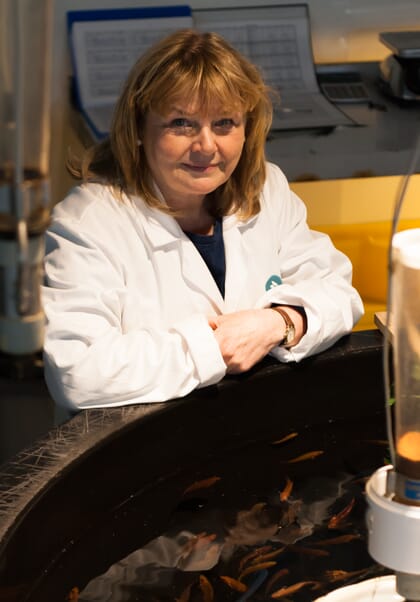
What advice would you give to women looking to start a career in the aquaculture sector?
Do it. This is a prefect time. It is interesting and stimulating and a really great sector to be involved in. Do it with confidence and help to contribute.
What has been the aquaculture industry’s greatest accomplishment in recent years?
By far the greatest accomplishment and indeed game changer within the salmon industry, in the time I've been involved, was the development of the furunculosis vaccine in 1989. Only those who worked in the industry before 1989 will remember and appreciate the devastating effect of this disease and how demoralised the teams on each farm became at being unable to help their fish. It was a truly dark time in salmon farming.
What outstanding fish health challenge would you most like to solve?
Sea lice and AGD, but mostly sea lice. I think all of us would want that. I feel, though, that we will wait a long time to find the silver bullet and that salmon farmers need an armoury of solutions at their disposal.
How do you see Ardtoe evolving in the years to come?
I see Ardtoe evolving to become the jewel in the crown for Benchmark. It has so much to contribute to the research and development of all Benchmark’s future solutions for the industry. For the past 50 years it has nestled in a tiny village and the local community feel invested in it and support it. Nearly every family there has had someone work at Ardtoe and I see Benchmark’s role as carrying that trust forward and helping to keep FAI Ardtoe at the centre of industry-led aquaculture research.


